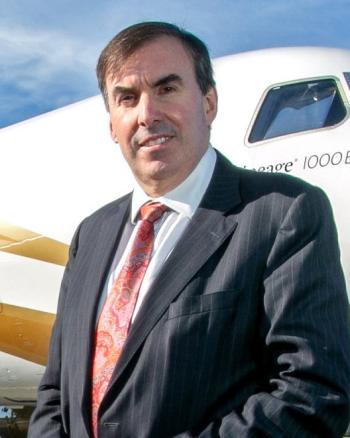COMMENTARY: Sabre’s Continuing Relationship With Aeroflot Should End

More than most other industries, aviation relies on a robust international regulatory framework—and a global network of suppliers—for its continuing safe operation. And aviation is therefore uniquely vulnerable to international disruption, whether in the form of pandemics or conflicts.
Russia invaded Ukraine on Feb. 24, and three days later the European Union announced an airspace ban and a sanctions regime requiring the termination of Russian aircraft leases. The writing was soon on the wall for Russian airlines’ international networks, and on March 5 Aeroflot, the state-owned carrier, announced it was suspending all international destinations except to Minsk, Belarus.
Against that backdrop, Sabre announced on March 3 it would terminate its international GDS distribution agreement with Aeroflot, meaning that Aeroflot flights could no longer be sold outside Russia through Sabre-hosted travel agency systems. Amadeus and Travelport, the other two big GDS players, announced equivalent measures on the same day.
A casual observer might well have understood that Sabre had ceased its business relationship with Aeroflot, much like the 750-plus other companies that, according to Yale School of Management’s ongoing tracking, have put ethics above revenue and withdrawn from Russia.
But, sadly, there was much less to Sabre’s move than met the eye. With Aeroflot’s international flying coming to an end, international GDS bookings would have quickly approached zero anyway, and more to the point, GDS distribution is only a very small part of Sabre’s engagement with Aeroflot. While Sabre let the world know it was terminating Aeroflot’s GDS contract, it has continued to provide Aeroflot’s Passenger Service System (PSS), the IT foundation for the whole airline operation, which holds Aeroflot’s entire inventory of flights and seats, and enables functions ranging from bookings to check-in to departure control: no PSS, no functioning airline.
Meanwhile, Russia has expropriated several hundred leased aircraft and unilaterally re-registered them on the Russian register, in blatant violation not only of commercial law but also of the Chicago Convention, which has underpinned international aviation since 1944. The US Commerce Department has published a list of over 150 Russian-operated aircraft, including much of Aeroflot’s Boeing 777 and 737 fleets, now in presumed violation of US export controls. And yet, although the US Export Control regime prohibits suppliers from providing any services to these identified aircraft, Aeroflot is still able to use Sabre software for reservations, check-in, and flight dispatch for these planes.
More than most other industries, aviation relies on an international rules-based order, painstakingly constructed over many decades. Sabre itself is a company with an illustrious history, and has been at the heart of the aviation industry and of airline technology over much of that time. It’s therefore all the more perplexing to see a firm of its caliber choosing in recent weeks to take the wrong side of history and to facilitate the illegal operation of stolen aircraft.
To paraphrase the Chinese saying: The best time for Sabre to turn off Aeroflot’s PSS was the day Russia invaded Ukraine. The second-best time is today.
Editor’s note: Sabre did not respond to an invitation to comment on this article.
Patrick Edmond is managing director at Altair Advisory, an aviation strategy consultancy. His 30-year career in technology and aviation spans travel technology, aircraft leasing, and senior airline commercial management. The views in this commentary are the author’s own and do not necessarily reflect those of ATW.


